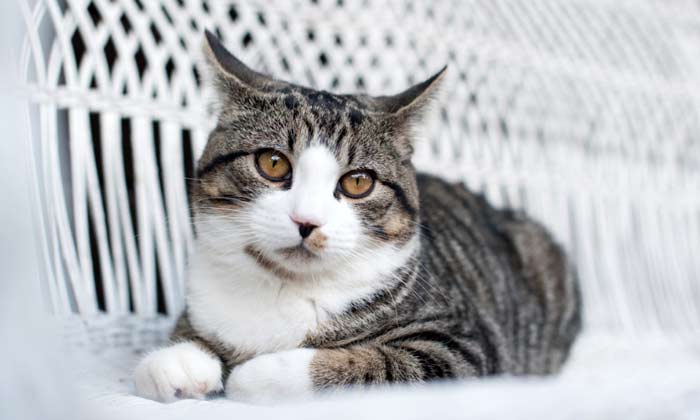Table of Contents
The Manx cat is renowned for its distinctive appearance, particularly its taillessness. Beyond their unique looks, Manx cats have intriguing behaviors and social traits that make them special. This comprehensive behavioral study of the Manx cat delves into their personality, social interactions, and peculiar habits, providing a deeper understanding of this fascinating breed.

Understanding the Manx Cat’s Personality
The Manx cat is known for its friendly, affectionate, and playful nature. They form strong bonds with their owners and are often described as dog-like in their loyalty and behavior. This section explores the key personality traits that define the Manx cat:
- Affectionate: Manx cats are very loving and enjoy being close to their human companions. They often follow their owners around the house and seek out cuddles and attention.
- Playful: These cats retain their playful kitten-like behavior well into adulthood. They enjoy interactive play with their owners and can be quite entertaining with their antics.
- Intelligent: Manx cats are highly intelligent and curious. They enjoy exploring their surroundings, solving puzzles, and can even be trained to perform tricks.
- Social: Unlike some other breeds, Manx cats are very social and often get along well with other pets, including dogs.
Social Behavior and Interaction
Manx cats have distinct social behaviors that set them apart from other breeds. This section highlights their interaction with humans and other animals:
Bonding with Humans
Manx cats form deep bonds with their human families. They are known to be very loyal and will often follow their owners from room to room. Their affectionate nature makes them excellent companions.
Interaction with Other Pets
Manx cats generally get along well with other pets. They are known for their adaptability and can coexist peacefully with dogs and other cats. However, early socialization is crucial to ensure they are comfortable in multi-pet households.
Play and Activity
Playfulness is a significant aspect of the Manx cat’s behavior. They enjoy interactive toys, puzzles, and games that challenge their intellect. Engaging in regular play sessions helps keep them mentally and physically stimulated.
Unique Behavioral Traits
The Manx cat has several unique behavioral traits that are worth noting. These traits contribute to their charm and make them a favorite among cat enthusiasts:
Hunting Instincts
Manx cats have strong hunting instincts. They enjoy stalking and pouncing on toys, and their agility makes them excellent hunters. Providing toys that mimic prey can help satisfy their natural hunting behavior.
Communication
Manx cats are known to be quite vocal. They use a variety of sounds, including trills, chirps, and purrs, to communicate with their owners. Understanding their vocalizations can help owners respond to their needs effectively.
Territorial Behavior
While generally friendly, Manx cats can exhibit territorial behavior, particularly in multi-cat households. Providing each cat with its own space and resources can help reduce territorial disputes.
Training and Enrichment
Due to their intelligence and curiosity, Manx cats respond well to training and enrichment activities. This section provides tips on how to keep your Manx cat engaged and well-behaved:
Litter Training
Manx cats are typically easy to litter train. Consistency and positive reinforcement are key. Ensure the litter box is kept clean and is easily accessible.
Obedience Training
Using treats and praise, Manx cats can be trained to follow basic commands such as “sit,” “stay,” and “come.” Short, regular training sessions are most effective.
Enrichment Activities
To keep your Manx cat mentally stimulated, provide a variety of toys, climbing structures, and interactive puzzles. Regular playtime and new experiences can prevent boredom and promote overall well-being.
Health-Related Behavioral Issues
Like all breeds, Manx cats can experience health-related behavioral issues. Understanding these can help in early detection and treatment:
Manx Syndrome
Manx Syndrome is a genetic condition that affects some tailless Manx cats. It can cause a range of issues, including spinal defects and digestive problems, leading to discomfort and behavioral changes. Regular veterinary check-ups are essential.
Obesity
Manx cats can be prone to obesity, which can impact their behavior and overall health. Ensuring a balanced diet and regular exercise is crucial to maintaining a healthy weight.
Conclusion on the Behavioral Study of the Manx Cat
This behavioral study of the Manx cat highlights the unique and endearing traits of this breed. From their affectionate nature to their playful antics, Manx cats bring joy and companionship to their owners. Understanding their behavior and providing appropriate care, training, and enrichment can ensure they lead happy, healthy lives. For more insights into cat behavior and care, visit the ASPCA and Cornell Feline Health Center.
FAQs on the Behavioral Study of the Manx Cat
Are Manx cats good with children?
Yes, Manx cats are generally good with children. Their playful and affectionate nature makes them excellent companions for families.
Do Manx cats require a lot of grooming?
Manx cats have a short to medium coat that requires regular brushing to keep it clean and free of tangles. However, they do not require extensive grooming.
Can Manx cats be left alone for long periods?
Manx cats thrive on companionship and may not do well when left alone for extended periods. It’s important to provide them with social interaction and enrichment.
What is the lifespan of a Manx cat?
Manx cats typically live between 12 to 16 years, but with proper care, some can live even longer.
Are Manx cats prone to any specific health issues?
Manx cats can be prone to Manx Syndrome and obesity. Regular veterinary check-ups and a healthy lifestyle can help manage these risks.
Do Manx cats get along with other pets?
Yes, Manx cats are generally social and can get along well with other pets, including dogs and other cats, especially if they are properly socialized.











